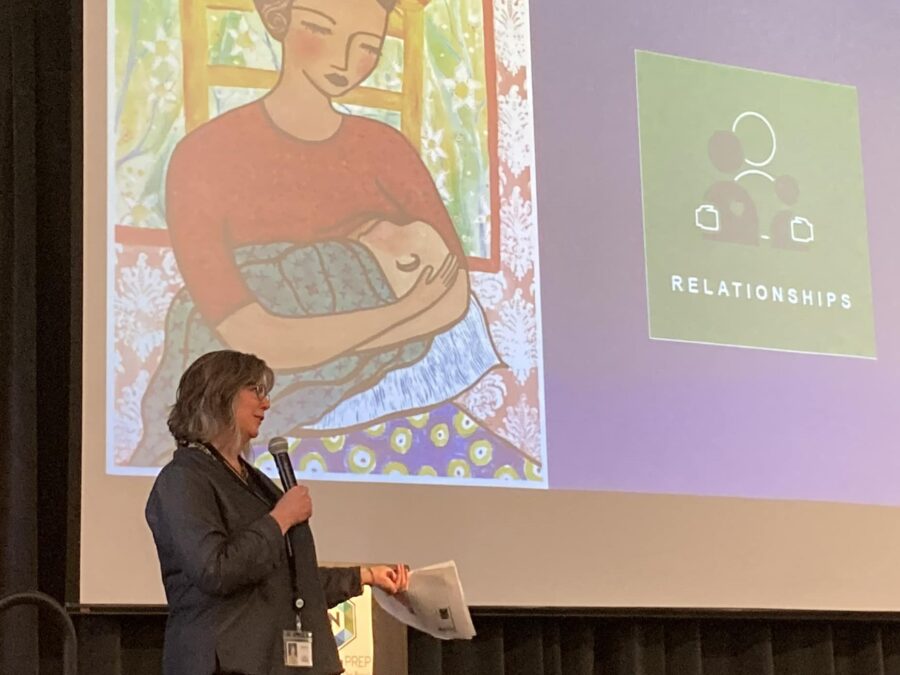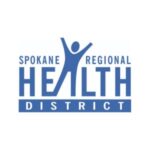
Partner
Spokane Regional Health District

Spokane Regional Health District (SRHD) is one of 34 local public health agencies serving Washington state’s 39 counties. The agency was originally established in service of the City of Spokane and Spokane County health departments. They have approximately 250 employees and serve a population of more than 500,000 in Spokane County. As a leader in public health, they aim to protect, improve, and promote the health and well-being of all people through evidence-based practices.
Goals
During the COVID-19 pandemic, Jennifer Hansen and Rumyana Kudeva, two SRHD staff members who are HOPE Champions, worked to design a new program called Beginnings Matter that aimed to strengthen the capacity of organizations working to transform the systems impacting infant and maternal health. They were specifically looking for an approach that was strengths- and asset-based, expanded beyond ACEs, and emphasized building resilience.
After being introduced to the HOPE framework at the 2021 HOPE Summit, the Beginnings Matter team immediately felt it resonated with what they were looking for. SRHD’s goals for implementing HOPE included:
- Increase equitable access to PCEs to reduce health disparities
- Increase families’ satisfaction and reduce health disparities
- Improve family/provider relationships
- Increase staff retention and satisfaction
Implementation
Because the Beginnings Matter team chose the HOPE framework themselves, they felt more aligned with its values and developed a greater sense of ownership over its implementation.
Focusing HOPE first at the divisional level
The Beginnings Matter team first integrated the HOPE framework into the Community Health Division, with a focus on the Nurse-Family Partnership (NFP) program, which partners nurses with expecting mothers during pregnancy, delivery, and the first 24 months of their child’s life. Initial steps to implement HOPE included foundational HOPE training for staff, sharing and encouraging the use of HOPE resources, and participation in the HOPE Innovation Network, a guided cohort by the HOPE National Resource Center focused on HOPE practice and improvement. The team also used HOPE to shift their internal culture and build staff relationships, as well as to guide organizational policies and practices.
Expanding HOPE across other departments and organizations
After the team’s initial focus on the NFP program, their work with HOPE expanded to other SRHD departments and organizations in the broader Spokane community. This expansion occurred in both formal and informal ways—through leading HOPE trainings with community partners, introducing the framework in their work with local early childhood coalitions, and intentionally using HOPE language while highlighting PCEs and HOPE resources in their everyday connections and relationships.
Lessons learned
Families felt supported, heard, and celebrated by NFP nurses
Families appreciated how their NFP nurses took the time to understand and effectively address a wide range of needs and to connect them with relevant resources. They also described the nurses as open and non-judgemental, allowing them to communicate their concerns without embarrassment or fear of judgment. This approach helped foster a foundation of trust between the nurses and the mothers. They felt affirmed and celebrated by their nurses, who recognized their strengths and personal achievements, family progress, and children’s milestones together.
HOPE played a key role in building trusting relationships with families
Staff shared that some parents were hesitant to engage when conversations focused on ACEs. HOPE helped shift the focus to families’ hopes for the future and practical steps they could take to achieve their goals. By emphasizing PCEs, staff were able to highlight families’ strengths and how they can use them to overcome challenges, with families feeling more engaged in the process.
HOPE helped the SRHD team foster relationship-building and cross-program collaboration
SRHD leadership shared that the cultural shift through HOPE has improved the overall work experience for staff and helped address the high attrition rates that arose during the pandemic. The group also discussed how, in addition to shaping their relationships with families, the Four Building Blocks of HOPE have influenced the ways they support and connect with each other as staff.
HOPE has empowered the team to influence policy change
In SRHD’s maternal health programs, the team has worked to address ACEs and promote PCEs through their deep relationships with families, as well as by driving changes in policy, environment, and systems. Over the past two years, SRHD has worked to raise awareness of HOPE through their work with local childhood coalitions to share resources, learnings, and training opportunities. These efforts have contributed to a growing focus among policymakers on ensuring equitable access to quality childcare for all children.
Future plans
The SRHD team is dedicated to cultivating and integrating HOPE both internally and throughout the broader Spokane community. For 2024 and beyond, the team has identified and begun work in the following focus areas:
Staff support and development
The team plans to expand their implementation focus to include not only programmatic staff, but also administrative, communications, and HR teams. This will involve adapting HOPE trainings and materials to align with the specific roles, responsibilities, and family-facing interactions on these teams.
Multi-year learning series
SRHD plans to continue the implementation of HOPE in their community through a multi-year learning series called Social Connections through the Lifespan with HOPE. The series will provide opportunities for continuous engagement with the HOPE framework and new research on positive experiences and resilience. Social Connections will also connect local leaders and organizations serving families and young children, facilitate their collaborative work, and encourage stronger connections between them. In the first year, they will focus on the perinatal period and children 0-5 and how access to each Building Block of HOPE strengthens opportunities for their social connection within the community.
Community partner engagement and training
In addition to the multi-year learning series, the team will continue to engage and train community partners on HOPE. Each training is tailored to the specific context their partners are working in. Based on strong interest from partners, the team is also coordinating a Social Connections Learning Series that focuses on social connections and the Building Blocks of HOPE across different stages of life. This series will bring together partners working across different sectors to facilitate learning, reflection, and identifying ways in which they can work together as a community to strengthen social connectedness among Spokanites.
This case study was developed in partnership with Root Cause.


